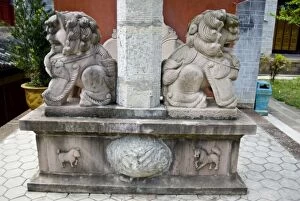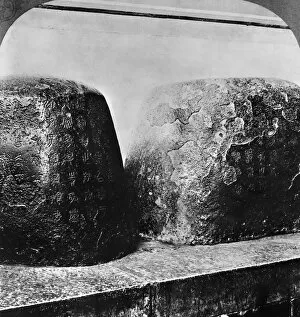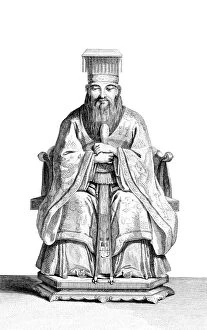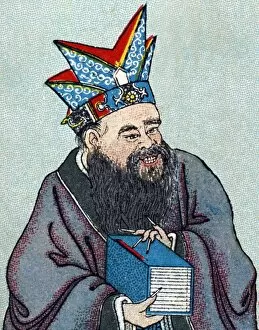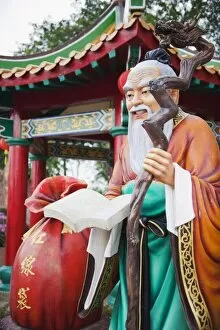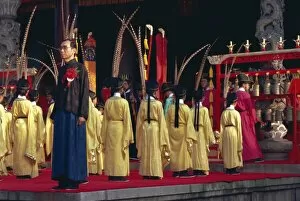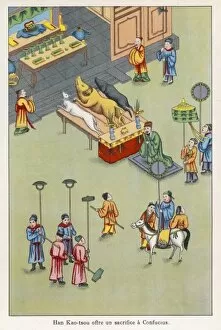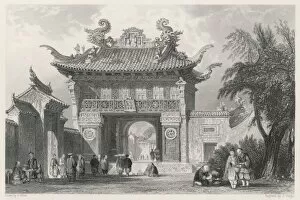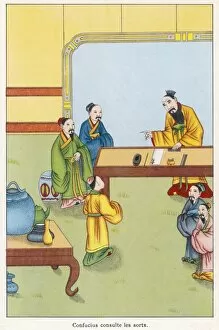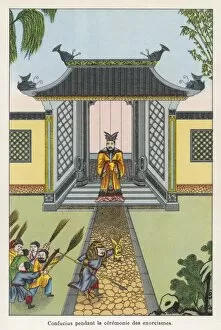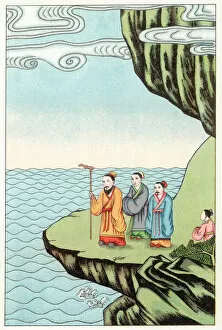Confucius Collection (page 5)
Confucius, also known as Kong Qiu or Master Kong, was a revered Chinese philosopher and teacher who lived during the 6th century BC
For sale as Licensed Images
Choose your image, Select your licence and Download the media
Confucius, also known as Kong Qiu or Master Kong, was a revered Chinese philosopher and teacher who lived during the 6th century BC. He is often mentioned alongside other great thinkers such as Buddha and Lao-Tse, forming the trio of influential figures in Eastern philosophy. In various parts of Asia, Confucius is honored through statues and temples dedicated to his teachings. The Shanghai Confucius temple in China stands proudly with a statue of him at its center, reminding visitors of his profound impact on Chinese culture. Similarly, the Temple in Hanoi, Vietnam pays homage to this wise sage. The legacy left by Confucius extends beyond physical monuments; it permeates throughout history. Portraits depicting Chinese emperors, empresses, and famous men often include references to his teachings as they sought guidance from his wisdom. One can find traces of Confucianism even today - prayer cards bearing his name are placed at the Confucius Temple in Hangzhou, Zhejiang province in China. This act reflects people's continued respect for his moral principles that emphasize harmony within society. Beyond mainland China and Vietnam lies Singapore's Chinese Garden where a majestic statue stands tall amidst serene surroundings. This symbolizes how far-reaching his influence has become across borders. Ceiling paintings adorning the main hall inside Beijing's grandiose Confucius Temple depict scenes from ancient times when scholars gathered to study under the guidance of this esteemed philosopher. These artworks serve as a reminder that education plays an integral role in shaping individuals' characters according to Confucian values. Confucius himself once said: "It does not matter how slowly you go so long as you do not stop. " His words continue to inspire generations around the world seeking knowledge and personal growth while striving for social harmony – truly making him one of humanity's most enduring icons.

